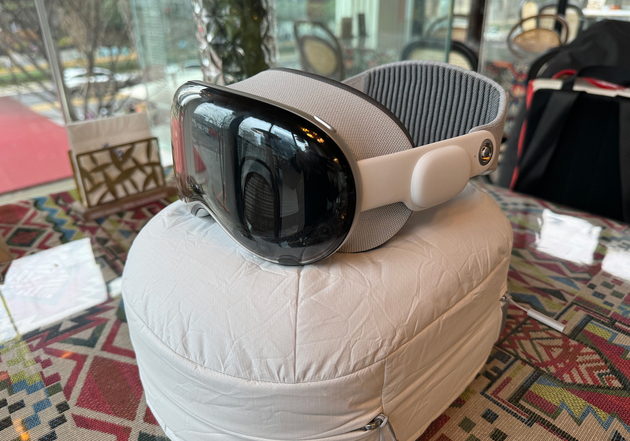
Photo/Zheng Yuhang (NBD)
1. Musk Talks AI: Power Shortages Coming Soon
Elon Musk said in a recent interview that AI computing seems to be growing at 10x every six months, a wave bigger than any "gold rush" in history. However, with the expanding AI infrastructure, challenges also arise. Musk said that the constraints of AI computing are very predictable. A year ago, the shortage was chips, neural network chips. So, it's easy to predict that the next shortage will be power infrastructure (e.g. transformers).
Commentary: Musk's prediction highlights the huge demand for power infrastructure from the AI industry, and implies the importance of clean energy in future technology development.
2. Vision Pro Used in UK Surgery for the First Time
A team at London's Cromwell Hospital recently used the Vision Pro device to repair a male patient's spine. The assistant nurse assisting the surgeon wore the device, which displays important information on a virtual screen in the headset, to help with surgery preparation, tracking, and instrument selection. Apple said it was very excited about the medical applications of Vision Pro. The company noted that Vision Pro can seamlessly integrate digital content with the physical world, and its unique features will change multiple areas including clinical education, surgical planning, training, and medical imaging.
Commentary: The medical application of Vision Pro demonstrates Apple's strategic layout in augmented reality technology, and may lead to technological innovation in the medical industry.
3. OpenAI Responds to Musk's Lawsuit for the First Time
On March 11, local time, OpenAI slammed Musk's allegations in a court filing in San Francisco, saying they were based on incoherent and illogical factual premises. The company reminded the court that Musk could use the lawsuit to gain access to OpenAI's proprietary records and technology, so the information sharing process needs to be carefully supervised. This is OpenAI's first judicial response to Musk's lawsuit.
Commentary: OpenAI's response to Musk's lawsuit could affect the company's public image and judicial risk management, reflecting the legal complexity of the AI field.
4. Apple Watch Granted New Patent for Core Body Temperature Detection
According to a list recently published by the United States Patent and Trademark Office, Apple has been granted a new patent for the Apple Watch that can track core temperature, and the company has already equipped the Apple Watch with a temperature sensor based on this patent. It is reported that the current method of detecting human core temperature is mainly using a medical thermometer to measure, and it needs to be taken in an invasive way such as entering the mouth or ear, while Apple introduces a non-invasive way to measure core temperature in this patent.
Commentary: The new patent for Apple Watch may change the health monitoring market and demonstrates Apple's continued leadership in wearable device innovation.
5. Perplexity Nears Unicorn Status
According to foreign media reports, American AI startup Perplexity is finalizing a new financing agreement, with the company's valuation in the agreement at about $1 billion. Perplexity was founded in August 2022, which means that the company is on track to become a unicorn just one year after its establishment. This is very rare on a global scale. In January of this year, the company completed a $73.6 million Series B round of financing at a valuation of $520 million. Among the new investors in the B round, the most notable are Nvidia and Amazon founder Jeff Bezos.
Commentary: Perplexity's rapid growth and unicorn potential demonstrate the market appeal of AI search technology and the recognition of its innovative model by industry leaders.
Disclaimer: The content and data in this article are for reference only and do not constitute investment advice. Verify before using.


 川公网安备 51019002001991号
川公网安备 51019002001991号





